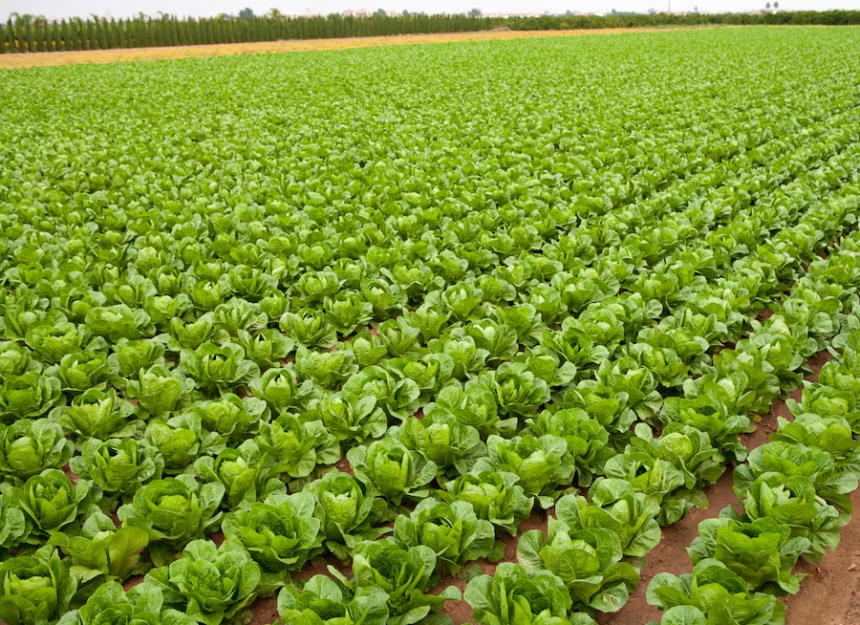Aphids are a common pest on vegetable farms, known for their ability to rapidly multiply and damage crops by feeding on plant sap. They can also transmit plant viruses, making their management crucial for healthy, productive gardens and farms. Instead of relying on harsh chemicals, many organic and natural methods can be effective in controlling aphid populations while maintaining a healthy environment. Here are some of the best natural ways to manage aphids in vegetable farms.
1. Encourage Beneficial Insects
One of the most effective ways to control aphids is by introducing natural predators to the environment. Several insects feed on aphids, and by encouraging them to thrive in your garden, you can significantly reduce aphid numbers.
- Ladybugs (Ladybird beetles): Ladybugs are perhaps the most well-known natural predator of aphids. Both the adults and larvae consume large quantities of aphids, making them highly effective in aphid control.
- Lacewings: The larvae of lacewings also feed on aphids, and these insects are easily attracted to gardens with plants that provide nectar and pollen.
- Hoverflies: The larvae of hoverflies, often mistaken for small bees, also prey on aphids. Planting flowers such as dill, fennel, and cilantro can attract hoverflies to your vegetable farm.
- Parasitic Wasps: These tiny wasps lay their eggs inside aphids, and once the larvae hatch, they feed on the aphid. They are highly effective but may require careful management of their environment to thrive.
2. Neem Oil
Neem oil, derived from the neem tree, is a natural pesticide that disrupts the life cycle of aphids. It works by interfering with the aphids’ feeding habits and can prevent them from reproducing. Neem oil is safe for most beneficial insects and plants, making it a great option for organic farms. When using neem oil, make sure to apply it during the early morning or late evening to avoid harming pollinators.
3. Soap Solutions
Insecticidal soap is a natural alternative to chemical pesticides. A simple mixture of water and mild liquid soap can be sprayed directly onto aphids. The soap breaks down the outer coating of the aphids, causing them to dehydrate and die. To make your own insecticidal soap, combine 1 tablespoon of mild dish soap with 1 liter of water. It’s important to test this solution on a small part of the plant first to ensure it won’t damage the leaves.
4. Diatomaceous Earth
Diatomaceous earth (DE) is a fine powder made from the fossilized remains of diatoms. It works by scratching the exoskeletons of insects, causing them to dehydrate and die. When sprinkled around plants or on aphid colonies, DE can help keep aphid populations under control. It’s important to apply diatomaceous earth in dry conditions, as moisture can render it ineffective.
5. Companion Planting
Certain plants can naturally repel aphids, and by incorporating them into your vegetable farm, you can protect your crops without using chemicals. Some plants that are known to deter aphids include:
- Garlic: The strong scent of garlic can act as a natural deterrent to aphids.
- Chives: These aromatic plants not only repel aphids but also enhance the growth of nearby vegetables like tomatoes and peppers.
- Marigolds: The pungent odor of marigolds can repel aphids and other pests from your vegetable garden.
- Nasturtiums: These flowers act as a trap crop, attracting aphids away from more valuable plants.
6. Reflective Mulches
Reflective mulches, such as silver-colored plastic or aluminum foil, can confuse aphids and disrupt their ability to locate plants. When placed around crops, these mulches reflect light and make it difficult for aphids to find their food source. This method is particularly useful for crops like tomatoes, peppers, and lettuce, which are susceptible to aphid infestations.
7. Water Spray
A strong blast of water can dislodge aphids from plants, especially when they are present in small numbers. Using a garden hose with a high-pressure nozzle, spray your plants early in the morning to knock aphids off the leaves. This method can be repeated as needed, and it’s particularly effective for leafy vegetables like lettuce, kale, and spinach.
8. Garlic and Hot Pepper Spray
Garlic and hot pepper are two natural ingredients that can be combined to create an effective aphid repellent. Both garlic and pepper have strong odors and properties that aphids find unpleasant. To make your own spray, blend a few garlic cloves and hot peppers with water, then strain the mixture and pour it into a spray bottle. Apply this solution to affected plants every few days or after heavy rain.
9. Plant Resilient Varieties
Certain vegetable varieties are more resistant to aphids. By choosing plants that are naturally less appealing to aphids, you can reduce the likelihood of an infestation. For example, some varieties of cabbage, kale, and broccoli are more resistant to aphid damage than others. Selecting these varieties can be a proactive approach to managing aphid populations.
10. Crop Rotation
Aphids tend to favor certain plants, so rotating crops each year can help prevent them from building up in the soil. By changing the location of your plants, you disrupt the aphids’ life cycle and reduce the risk of infestations. Crop rotation also promotes soil health, making it an excellent practice for long-term farm sustainability.
Conclusion
Aphid infestations can be a significant challenge for vegetable farmers, but with the right natural control methods, they can be effectively managed. Encouraging beneficial insects, using neem oil or insecticidal soap, planting companion plants, and employing physical barriers like reflective mulches are all excellent ways to reduce aphid populations without resorting to harmful chemicals. By integrating these practices into your farming routine, you can maintain a healthy, thriving vegetable garden while minimizing your environmental impact.
Join 'Farmers Mag' WhatsApp Channel
Get the latest Farming news and tips delivered straight to your WhatsApp
CLICK HERE TO JOIN






